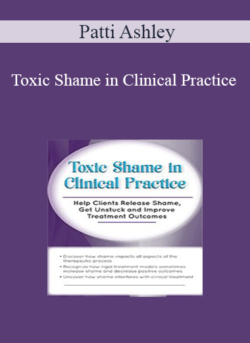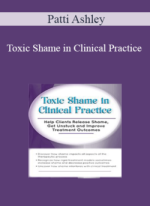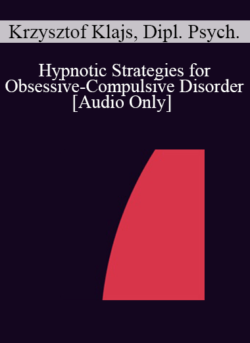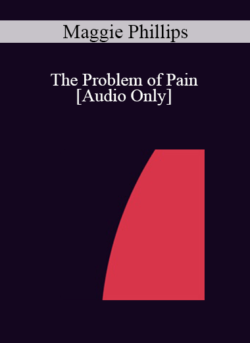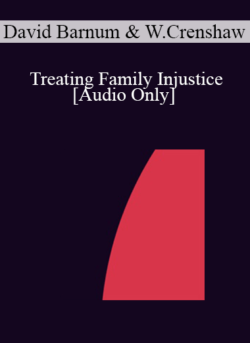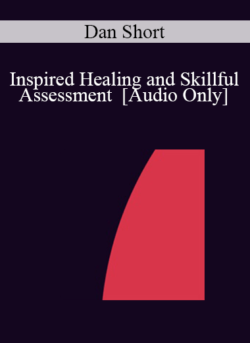[Instant Download] – Immediately deliver the download link after receiving the paymentPurchase Patti Ashley – Toxic Shame in Clinical Practice: Help Clients Release Shame, Get Unstuck and Improve Treatment Outcomes courses at here with PRICE $219.99 $41Faculty:Patti AshleyDuration:5 Hours 49 MinutesFormat:Audio and VideoCopyright:Sep 14, 2018 Manual – Toxic Shame in Clinical Practice (4.81 MB) 76 Pages Available after Purchase Outline PART ONE: HOW SHAME SHOWS UP IN TREATMENTToxic ShameResearch & DefinitionsRuptures in interpersonal relationships create a shame-based identityShame and trauma function similarly in the nervous systemSubconscious shame effects of poisonous parentingAttachment theories as they relate to shameD.W. Winnicott’s true self/false selfShame in family, culture and other systemsLimitations of the researchSigns of Toxic Shame:What to Watch for in Assessment and BeyondIndividual Therapy – the client who:Talks the whole sessionFrequently cancels sessionsFeels bad when progress seems to have eludedTerminates treatment earlyDeflects and projects onto othersRelapses and does not returnMinimizes problemsExcessively intellectualizes and analyzes treatmentCouples/Family TherapyThe attack/defend patterAnger, rage and contemptJudgment of self and othersGrandiosity, narcissism and self-inflationPeople pleasing and codependencyAvoidanceProblems with intimacyGroup Therapy:Cross-talkIntellectualizingSilenceJudgmentConflictWhen the Therapist is Part of the ProblemRigid Treatment Models May Increase Shame and Decrease Positive OutcomesShame can be activated when therapist appears to be the “expert”Some strategies hinder treatment outcomesStrategies that may create barriers to creativity and relational presenceImpact of mirror neurons and epigeneticsHow naming “shame” can be shamingUnconsciously enacting shaming parentTreating client as appointment or diagnosisWhat to do when your shame is triggered in-sessionPART TWO: TREATING THE TOXIC SHAME Effectively Treat Toxic ShameImplications for Treatment to Move Forward with ClientsRight and left brain integrationBottom-up versus top-down treatment approachesModeling, engaging and sustaining self-compassionRepair the interpersonal bridge to self and othersCourage and vulnerability in right-brain regulationSustaining empathy in parallel processTransference and counter-transference in treatmentTherapeutic Strategies:Putting It All to PracticeBuild a Safe Therapeutic Holding EnvironmentEstablish safety and trustSet a stage for treatmentStrong foundation for therapeutic workBuild a Solid RelationshipTherapeutic empathy as the antidote for shameConnect and establish equal powerMindfulness and compassionBridge the Head and HeartPsycho-education to demystify shame”I” statements to identify shame-based feelingsGoing beyond cognitive therapy modelsWitness and guide clients through deeper layersReturn shame to its originSomatic strategiesRe-wiring new neural pathwaysExperiential Tools and TechniquesCreative arts, writing and movement activitiesMindfulness and meditationArchetypes, story-telling and mythologyMusic and sound healingJournaling and letter-writingWorking with SecretsPatience and compassionDeeper shameTolerance and non-judgmental witnessingCreativityEvery client is uniqueHow therapy is like artGoodness of fitResearch limitations and potential treatment risksFacultyPatti Ashley, Ph.D., L.P.C. Related seminars and products: 3 Patti Ashley, Ph.D., L.P.C. owns and operates Breakthrough Psychotherapy and Parent Coaching in Boulder, Colorado. Combining elements of developmental, cognitive, strength-based, and positive psychology, Dr. Ashley has created a psychotherapy model that helps clients excavate authenticity and life purpose. Identifying dysfunctional patterns and treating shame-based disorders are integral parts of her work with individuals, groups, couples and families.Patti has over thirty-five years of experience in the fields of education and psychology. These include developing continuing education courses for physicians and hospital wellness programs; instructing undergraduate and graduate courses for universities; and counseling individuals, couples and families in mental health agencies, psychiatric hospitals, and private practice settings.Dr. Ashley completed a Doctor of Philosophy Degree in 2002. she is the author of the book Living in the Shadow of the Too-Good Mother Archetype, (2014) Dr. Ashley is currently writing two other books scheduled for release in 2018: Reconciliation of the Heart: How Beliefs, Choices and Forgiveness Influence Authenticity and Life Purpose,and Letters to Freedom: A True Story of Grief and Love that Never Dies. Patti is also a featured journalist for numerous publications, and a frequent workshop presenter. Speaker Disclosures: Financial: Patti Ashley maintains a private practice. She receives a speaking honorarium from PESI, Inc. Non-financial: Patti Ashley has no relevant non-financial relationship to disclose. Salepage: https://catalog.pesi.com//item/toxic-shame-clinical-practice-clients-release-shame-unstuck-improve-treatment-outcomes-34073Archive: https://archive.ph/wip/xtZ8zPurchase Patti Ashley – Toxic Shame in Clinical Practice: Help Clients Release Shame, Get Unstuck and Improve Treatment Outcomes courses at here with PRICE $219.99 $41
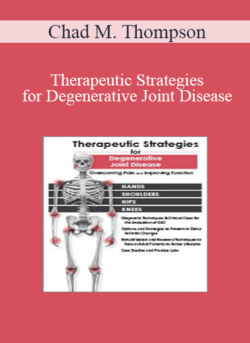 Chad M. Thompson – Therapeutic Strategies for Degenerative Joint Disease: Overcoming Pain and Improving Function
₹6,806.00
Chad M. Thompson – Therapeutic Strategies for Degenerative Joint Disease: Overcoming Pain and Improving Function
₹6,806.00
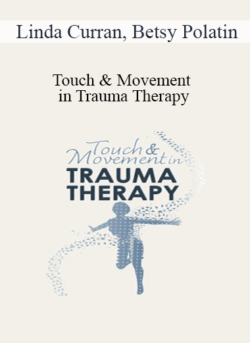 Linda Curran, Betsy Polatin – Touch & Movement in Trauma Therapy
₹6,806.00
Linda Curran, Betsy Polatin – Touch & Movement in Trauma Therapy
₹6,806.00
Patti Ashley – Toxic Shame in Clinical Practice: Help Clients Release Shame, Get Unstuck and Improve Treatment Outcomes
₹6,806.00

